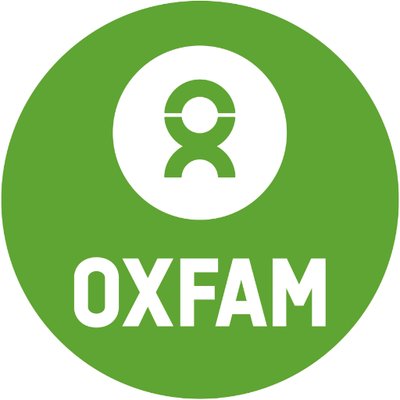Supply & Logistics Officer at Oxfam Nigeria

Oxfam is an international confederation of 17 organizations (affiliates) committed to creating a just world without poverty. In Nigeria Oxfam works in the areas of Economic Justice/Sustainable Livelihoods, Humanitarian Programming to save lives, Advancing Gender Justice and Good Governance, adopting a right based approach.
We are recruiting to fill the vacant position below:
Job Title: Supply & Logistics Officer
Req ID: 5901
Location: Abuja, Nigeria
Internal Job Grade: C1, Global
Contract type: 2 Years Fixed Term
Job Family: Business Support
Reporting to: Business Support Manager (BSM)
Staff reporting to this post: Supply & Logistics Officer
Annual Budget: The Oxfam Country Programme has a budget of over €14.5 million
Job Purpose
- The Supply and Logistics Manager supports the Business Support Manager in the envisioning, development and delivery of procurement and service delivery systems, structures, processes and policies across the Country Office.
- The job holder will contribute to strengthening Oxfam’s program responses by ensuring efficient, transparent and cost effective coordination of activities within supply chain and logistics in line with Oxfam policies and procedures (procurement planning, warehousing, inventory management/deliveries and logistics services).
Key Responsibilities and Accountabilities
- Procurement Planning & Management: Identify, evaluate, develop, monitor implementation and update annual procurement plans with clear specifications regularly to support needs based on requirements stated in Country plans and budgets.
- Lead on development of high impact cost savings and service delivery models for strategic sourcing, and within the context of the specific performance aspirations, business plans and Oxfam Procurement Policies.
- Develop framework agreements with suppliers to allow Oxfam more flexibility around goods or services contracted both in terms of volume and relevance of goods and services while ensuring that each purchase represents the best value. Solid framework agreements are anticipated to reduce the cost and time of tendering.
- Organise procurement & tendering processes in a manner that meets the five metrics of delivering goods and services with the:
- Right quantity;
- Right quality;
- At the right price;
- At the right time; and
- At the right location
- Develop simple tools and make them available for State Supply and Logistics staff while working to decentralise procurement to State levels
- Seek approval for bid proposals and specifications; composes requests for review by the relevant Committees and presents recommendations on purchase contracts requiring Management and/or Board approval to the Country Director for preliminary review sign off.
- Evaluate price and past performance of contract and seek approval where there is price increases and/or reductions as appropriate
- Ensure optimal cost, quality and service delivery via efficient procurement scheduling, inventory minimisation and customer order fulfilment requirements.
- Oversee vendor selection processes and selects top quality 3rd parties and partners based on predetermined criteria and set Oxfam standards; makes suitable selection recommendations to line manager and Country Director.
Logistics & Warehouse Administration:
- Monitor supply and demand trends and develops inventory management and control systems to ensure adequate stock levels, effective reorder processes, loss prevention and efficient warehouse space usage.
- Ensure compliance with operational procedures for activities such as verification of incoming and outgoing shipments, materials management and handling, stock control/inventory management, including related activity data and information management.
- Oversee assessment, analysis, resolution and communication of purchasing systems and service delivery issues; negotiates successful resolution to problems or concerns.
- Approve the salvage/replacement of damaged or outdated stock; ensures timely and accurate accounting (asset disposal) entries are posted with respect to such items.
Contracts & Supplier Management:
- Develop KPI’s for measuring the performance of suppliers, and coordinate improvements to supplier performance.
- Manage vendor relationships by clearly communicating expectations, monitoring procurement and supply activities to ensure deliveries meet established specifications and that applicable guidelines are met regarding the quality of the items received timeliness and product availability.
- Negotiate favourable agreements and contracts to gain appropriate savings and service levels; also ensures all legal contract requirements are met.
- Develop contracts and minimum service level agreements with service vendors; also builds mutually beneficial relationships with these vendors and 3rd party service providers.
- Manage high value relationships with suppliers, external contacts/government agencies, UN agencies and other NGOs with regards to logistical matters.
- Works to effectively remove any obstacles to ensure optimal delivery of services to the highest standards thereby achieving high levels of customer satisfaction.
- Safeguard the integrity of procurement documents, upholding confidentiality and privacy in the course of duty
Stock Reconciliation and Reporting:
- Oversee physical stock audits and reconciles inventory records; also manages and coordinates periodic and annual inventory of stock items working with Internal and External Auditors and Finance personnel.
- Ensure periodic updates and required management reports covering ordering, order tracking, inventory levels tracking/stock control, purchase orders and contracts, warehouse supplies and transportation planning & scheduling.
- Use tools/systems, including Key Performance Indicators (KPIs), to review and analyze the supply chain and processes periodically to identify key risk and improvement areas • Anticipate and coordinate requirements for institutional donor reporting.
- Lead periodic Logistics Assessments using the One Oxfam Supply and Logistics Assessment Tool (LAT) to establish current status and make work plans for the year ahead; respond to Inspections and Audit/Examination queries as may be required.
Fleet Management:
- Ensure that Fleet management operations comply with the relevant local regulations governing transport and Oxfam standards and procedures.
- Ensure the use of fleet management systems to monitor costs and performance and prepare management reports, using Terramar networks.
- Develop Fleet management action plan:
- Explore the possibility to implement Trackpoint tracking boxes
- Make a long term planning reviewing needs for transportation and maintenance
- Make an analysis for Lease or Buy decisions
Capacity Building:
- Coordinate activities and resources with implementing partners in order to achieve common objectives.
- Assess, monitor, manage, develop, and implement learning interventions for staff and partners (using PARCEL curriculum) and Oxfam Staff, in collaboration with Supply and Logistics staff at a regional or global level.
Educational, Experience & Competence
Essential:
- Master’s Degree or equivalent in Supply Chain, Logistics Management, Business Administration, Accounting, Finance or any other relevant discipline of study.
- Professional accreditation certification in Logistics/Supply Chain Management.
- Minimum of 10 years “hands-on” working experience in logistics/procurement systems, warehouse and fleet management with an international NGO including 3 years at supervisory level.
- Good understanding of working with donor requirements (EU/ECHO, UNHCR, DFID, USAID, etc.) and prior experience of monitoring/managing budgets.
- Excellent organizational, problem-solving, communication skills (oral and written), report writing skills and negotiation skills.
- Well-developed conceptual, critical, and analytical thinking with the ability to convey complex information in a straightforward, interesting way, and influencing this to a wider audience
- Ability to take the initiative and work independently as well work as a team player – supporting other departments.
- The ability to remain calm whilst deal with conflicting priorities/work under pressure is essential.
- Critical focus on providing a superior service level to managers and colleagues and delivering agreed results within time and budget constraints and to expected standards.
- Ability to represent Oxfam in a professional and competent manner with external individuals and organisations
- A high level of self-awareness, personal energy, stamina and flexibility.
- Ability to work creatively, effectively and under own initiative.
- Proven experience as a team worker and demonstrably cooperative with members of other teams, responding quickly and accurately to queries and issues.
- Experience using a computerised system (Ms. Word, Excel, Procurement software etc.)
- Commitment to Oxfam’s overall aims and policies and experience of promoting women’s rights and the interests of marginalized people in all aspects of Oxfam’s work.
- Knowledge or appreciation of Nigeria in terms of its political, economic and social trends plus a good understanding of the key development and humanitarian issues in the region.
- Strong experience with Oxfam business systems including OPAL, TRACKPOINT, HELIOS and Oxfam tool will be an advantage.
Desirable:
- Knowledge of Oxfam policies, procedure and systems.
- Post Graduate Degree qualifications and/or extensive experience in Supply Chain Management, Warehousing, Fleet Management, Logistics or Facilities Management.
Key Behavioral Competencies
- Decisiveness: We are comfortable to make transparent decisions and to adapt decision making modes to the context and needs.
- Influencing: We have the ability to engage with diverse stakeholders in a way that leads to increased impact for the organization We spot opportunities to influence effectively and where there are no opportunities, we have the ability to create them in a respectful and impactful manner.
- Humility: We put ‘we’ before ‘me’ and place an emphasis on the power of the collective, nurture the team and play to the strengths of each individual. We are not concerned with hierarchical power, and we engage with, trust and value the knowledge and expertise of others across all levels of the organization.
- Relationship Building: We understand the importance of building a relationship, within and outside the organization. We have the ability to engage with traditional and non-traditional stakeholders in ways that lead to increased impact for the organization.
- Listening: We are good listeners who can see where deeper levels of thoughts and tacit assumptions differ. Our messages to others are clear and consider different preferences.
- Mutual Accountability: We can explain our decisions and how we have taken them based on our organizational values. We are ready to be held to account for what we do and how we behave, as we are also holding others to account in a consistent manner.
- Agility, Complexity, and Ambiguity: We scan the environment, anticipate changes, are comfortable with a lack of clarity and deal with a large number of elements interacting in diverse and unpredictable ways.
- Systems Thinking: We view problems as parts of an overall system and in their relation to the whole system, rather than reacting to a specific part, outcome or event in isolation. We focus on cyclical rather than linear cause and effect. By consistently practicing systems thinking we are aware of and manage well-unintended consequences of organizational decisions and actions.
- Strategic Thinking and Judgment: We use judgment, weighing risk against the imperative to act. We make decisions consistent with organizational strategies and values.
- Vision Setting: We have the ability to identify and lead visionary initiatives that are beneficial for our organization and we set high-level direction through a visioning process that engages the organization and diverse external stakeholders.
- Self-Awareness: We are able to develop a high degree of self-awareness around our own strengths and weaknesses and our impact on others. Our self-awareness enables us to moderate and self-regulate our behaviors to control and channel our impulses for good purposes.
- Enabling: We all work to effectively empower and enable others to deliver the organization’s goals through creating conditions of success. We passionately invest in others by developing their careers, not only their skills for the job. We provide freedom; demonstrate belief and trust provide appropriate support.
Application Closing Date
Not Specified.
The post Supply & Logistics Officer at Oxfam Nigeria appeared first on Jobs in Nigeria – http://jobsinnigeria.careers.





